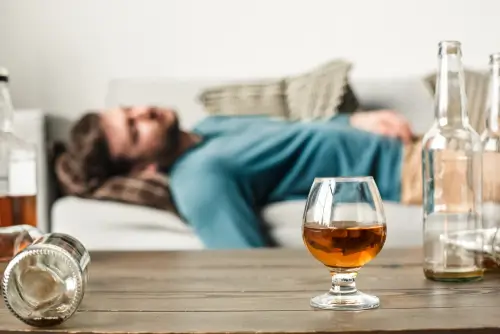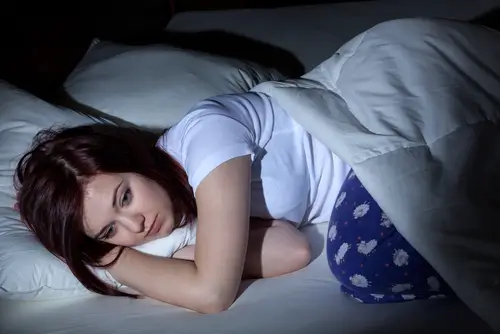REM sleep and sleep in general is vital to our health and longevity. Therefore, any substance that may affect our sleep cycle poses a health risk. The more you know about how alcohol affects sleep will help you understand how it may end up affecting one of the most important activities we do every day.
In this article, we will explore the various ways in which alcohol consumption can negatively impact sleep quality and quantity. We will delve into the science behind the sleep cycle, including the different stages of sleep and their respective functions in the body. We will discuss how alcohol affects the body and why it can lead to disrupted sleep patterns.
The Importance of Sleep
Good quality sleep is necessary to protect your mental and physical health, along with your quality of life and safety. The quality of sleep you get often plays a large role in determining how you feel when you are awake. During sleep, the body regenerates blood vessels, regulates hormones, strengthens your immune system, and much more.
We’ve discussed other ways in which alcohol can pose a health risk, but alcohol’s ability to inhibit the benefits of good quality sleep is paramount to its detriment as a substance. If you or someone you know needs help stopping their use of alcohol, contact someone today to learn more about our treatment programs and how we can help you reach long-term recovery.

How Does Alcohol Affect Sleep?
Many people drink themselves to sleep. Some even do it every night. The intention might be harmless—we all know how unpleasant it is when we cannot fall asleep. However, though alcohol might initially help us fall asleep, it doesn’t mean it’s good for you.
The Effects of Alcohol on Sleep Patterns
So how exactly does alcohol affect sleep? As you may know, alcohol is a depressant. It has sedative effects that can make you feel drowsy and also relaxes your muscles. While you may fall asleep more easily, alcohol actually increases the number of disturbances you have at night. When you wake up in the middle of the night after drinking and you can’t fall back asleep, you can blame alcohol. This is the irony of using alcohol for inducing sleep. Though people might use substances to self-medicate, the result is often more damaging due to alcohol’s inhibition of deep, restorative sleep.
There are other aspects of sleep that alcohol tends to interrupt. For example, alcohol can mess with your circadian rhythm, a.k.a. your sleep schedule. When you’ve been awake for a certain period of time, your body naturally produces adenosine, a chemical that makes you sleepy. Using alcohol increases the production of adenosine, which is why it is easier to fall asleep. But soon after, the adenosine production stops abruptly. This explains why many people wake up in the middle of the night after drinking.
The Effects on Physical Health
Furthermore, alcohol can interrupt sleep through aggravating breathing problems and increase bathroom trips. Alcohol relaxes all of your muscles, including the muscles in your throat, which leads to snoring and sleep apnea. Alcohol is also a diuretic, which means it increases urination. Usually, your body puts your bladder in hibernation during sleep, but alcohol tends to mess with that, too.
Alcohol can also affect the quality of non-REM sleep, the stage of sleep that is responsible for the physical restoration and repair of the body. Even small amounts of alcohol can reduce the amount of time spent in deep, restorative stages of non-REM sleep, which can result in a less restful night’s sleep.
It’s worth noting that the effects of alcohol on sleep quality can vary depending on individual factors, such as age, gender, and overall health. For example, older adults may be more susceptible to the negative effects of alcohol on sleep quality, while women may experience more disruptions to their sleep due to alcohol consumption compared to men.
The 5 Stages of Sleep
In order to fully understand how alcohol affects sleep, we have to first understand the different stages of sleep and what tends to occur in each stage. There are 5 stages of sleep:
- Stage W: Wakefulness
Throughout the day, your brain experiences different types of electrical activity. Right before you sleep, your brain begins to experience brain waves associated with daydreaming, relaxation, and contemplation. This is when you remember bits and pieces of your day, think about what you will do tomorrow, etc. As discussed above, studies show alcohol aids in this part of the sleep cycle. - Stage N1: Relaxed Wakefulness
When you finally begin to fall asleep, your body temperature begins to drop and your heart rate slows down. This is a short stage, but it is important due to “sleep spindles,” which are rapid bursts of electrical energy produced in the brain to aid the transition into a deeper sleep. - Stage N2: Light Sleep
Once your brain is in a total state of relaxation, it begins to produce delta waves, which are slow and directly tied to sleep. However, this is where alcohol begins causing problems. Alcohol creates a disturbance in the sleep cycle because it continues to incite alpha waves, which are not tied to deep sleep but are rather associated with resting quietly. This combination of delta (deep sleep) and alpha (resting) brain activity disrupts the normal sleep cycle and often leads a person to wake up and start back at Stage 1. - Stage N3: Deep Sleep, or Slow-Wave Sleep
This stage is a continuation of Stage 3. Delta waves increase, and the brain is almost ready for REM Sleep. However, with alcohol use, a person may not be able to enter this stage of the sleep cycle and therefore not obtain the rest they need. - Stage R: REM Sleep (Dreaming)
REM Sleep is the most important type of sleep you get every night. For every 8 hours of sleep, the average healthy adult gets between 1 and 2 hours of REM Sleep, and all of it is vital for the brain’s health. REM Sleep incites the part of the brain associated with learning; those who do not spend enough time in REM Sleep tend to have memory deficiencies. Furthermore, REM Sleep is when memories are sorted and stored, bodily tissues are repaired, and proteins are produced. It’s a big deal.
Why Can’t I Sleep?
People who drink alcohol to fall asleep often began to do so because they couldn’t fall asleep in the first place. There are many reasons why a person may have trouble falling asleep, including stress and mental illnesses. However, a person who drinks alcohol to fall asleep will never know the root cause of their sleep problems if they continue to use alcohol.
Alcohol blocks REM Sleep. REM sleep is a stage of sleep where the eyes move rapidly, and dreaming occurs. It is also the stage of sleep where memory consolidation and emotional regulation take place. Without REM, sleep can almost feel useless. This is why many people who use alcohol to fall asleep often wake up feeling groggy and unrested. While alcohol can initially make it easier to fall asleep, it can lead to fragmented sleep and a decrease in overall sleep quality, particularly in the second half of the night. This means that people who consume alcohol before bed may miss out on important stages of the sleep cycle, including REM sleep.
The effects of alcohol can also cause or worsen snoring and lead to the development of obstructive sleep apnea, leading to further disruptions in sleep quality. Over time, chronic alcohol use can contribute to the development of sleep disorders, such as insomnia and sleep apnea, which can have negative impacts on overall health and well-being.

Alcohol Addiction Treatment in Los Angeles
If you or a loved one is experiencing sleep problems related to alcohol use, it may be a sign of an underlying alcohol use disorder. While many people may be able to consume alcohol without developing an alcohol use disorder, those who struggle with addiction may find it difficult to control their alcohol use, despite the negative consequences it may have on their health, relationships, and overall well-being. If you or a loved one is struggling with sleep problems related to alcohol use, it may be helpful to seek outside support. There are many resources available for those seeking help for alcohol addiction, including counseling, therapy, support groups, and addiction treatment programs.
At Launch Centers, we offer a range of evidence-based addiction treatment services, including detoxification, residential treatment, and outpatient programs. Our team of experienced professionals is dedicated to helping individuals overcome addiction and achieve lasting recovery.
If you are interested in learning more about our addiction treatment services or would like to speak with one of our admissions counselors, please do not hesitate to reach out to us. We are here to help and support you on your journey to recovery.





